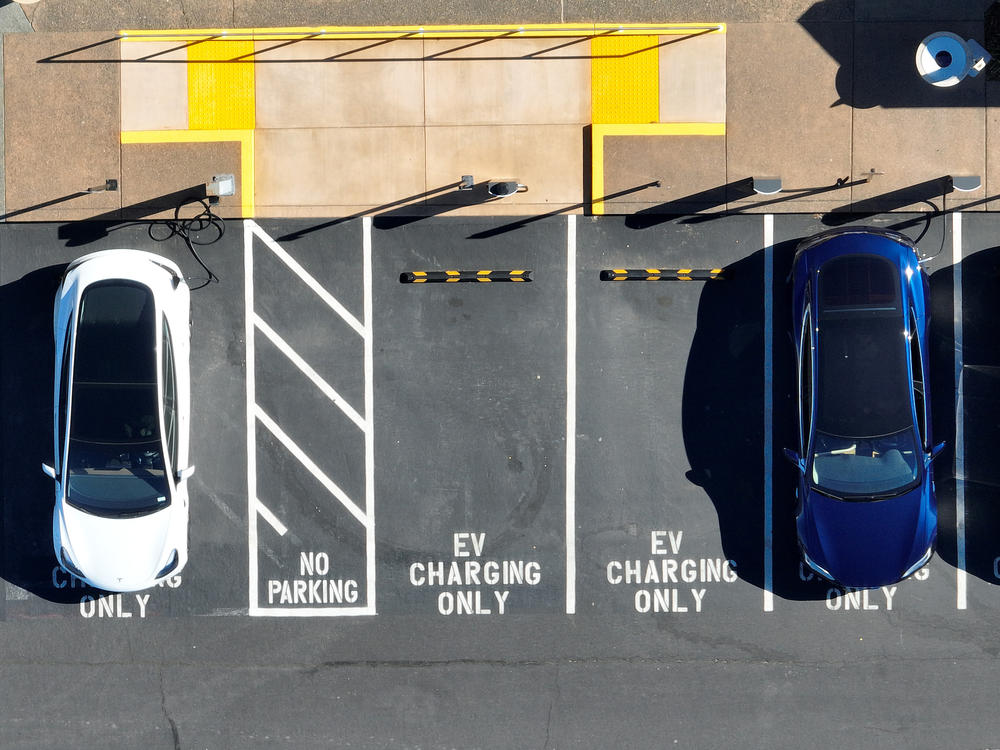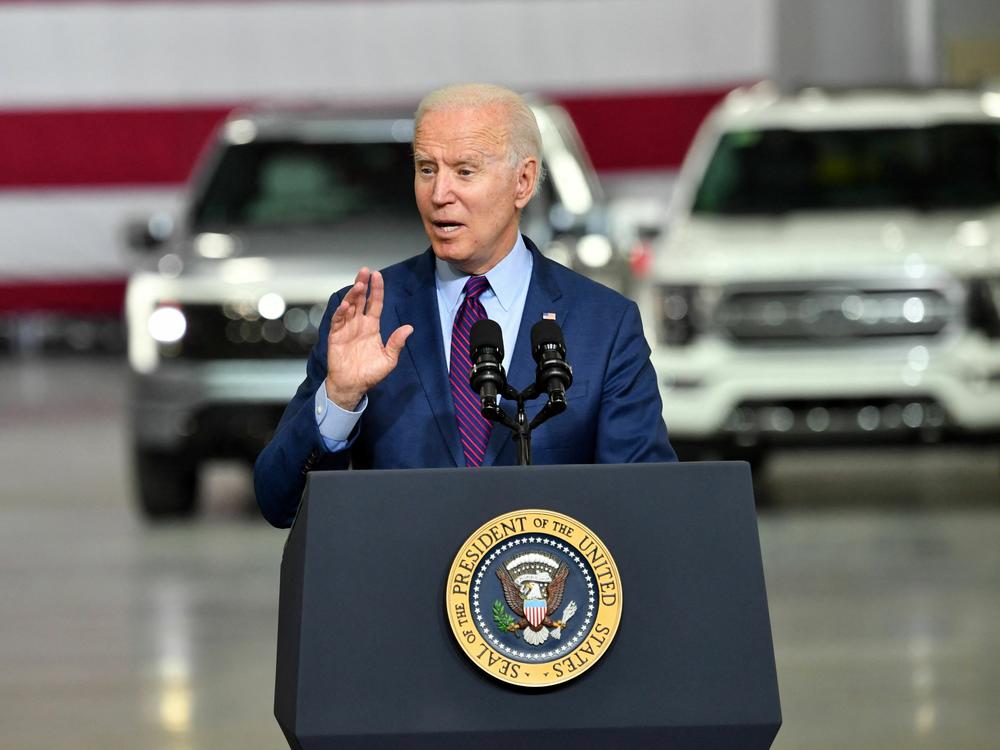Section Branding
Header Content
How fast can the auto industry go electric? Debate rages as the U.S. sets new rules
Primary Content
For car policy wonks, the Environmental Protection Agency's proposed new vehicle standards are this summer's hot blockbuster.
The surprisingly ambitious proposal unveiled earlier this year could mean that up to 67% of new vehicles sold by 2032 would need to be electric in order for carmakers to be in compliance. That would be a major step toward cutting U.S. greenhouse gas emissions.
Public comments on the EPA proposal closed on Wednesday, and the reviews have poured in.
"Vital," says one environmental group. "Feasible," says the electric vehicle lobby. "Neither reasonable nor achievable," say traditional automakers.
It's not just the auto industry weighing in. The ski industry — which is feeling the effects of climate change — has embraced the rule. The oil industry has vehemently objected to it, with the American Petroleum Institute warning it "will keep all options on the table" if it's finalized.
Accelerating a transition underway
A lot is at stake, and the EPA's rule is widely expected to be challenged in court, just as the current standards have been. The agency has previously indicated it planned to finalize the rule by March 2024.
Automakers are already moving to embrace electric vehicles, and the federal government has offered many billions of dollars in incentives to speed up that process.
If those incentives are a giant carrot, these proposed regulations are a sizable stick.
Unlike California and other states that require a certain percentage of new car sales be electric, the EPA would not set a direct mandate for electric vehicles.
However, the proposed standards for greenhouse gas emissions and pollution would be so low that to meet them across an entire fleet, automakers would almost certainly have to build large numbers of zero-emission vehicles. The EPA says that would save lives and save Americans a up to a trillion dollars on gasoline.
Vehicle standards are a complicated dance between regulators and industry. The government wants to set standards that are achievable, but not easy. Companies want standards that give them plenty of room to make profits.
Big automakers say the timeline is too fast
The Alliance for Automotive Innovation, the trade group representing big, traditional automakers, is lobbying for less stringent standards, pointing out that many elements of the transition to EVs — from beefing up the electric grid for chargers to having more raw materials for batteries — are outside of the direct control of carmakers.
The group is asking the EPA to aim for a lower percentage of car sales to be EVs by 2032, and to extend some "flexibilities" in how emissions and emissions credits are calculated; essentially, both lowering the target and giving companies more ways to hit it.
The group is also pushing for less stringent pollution standards on gas- and diesel-powered vehicles, arguing that if companies are supposed to be switching to EVs they'll have less money to invest in making internal combustion vehicles cleaner.
The group notes that automakers have embraced the overall goal of electrification, and the debate now is about the timeline. "If the Environmental Protection Agency were to address every solution we've outlined, this would still be by far the most aggressive regulation ever promulgated," John Bozzella, the president of the Alliance, said.
In their comments, the trade group also questions whether the EPA has the authority to set such ambitious standards. The auto industry has previously defended the EPA's right to set standards and encourage electrification, but says the scale of change imagined by the current standards is "unprecedented."
EV companies say it's doable
Meanwhile the Zero Emission Transportation Association, a much newer trade group representing Tesla and other all-electric automakers as well as charger companies and EV suppliers, is asking the EPA to impose even more stringent rules.
The group says that stringent rules are not only important for public health and the fight against climate change, but also create U.S. jobs — many government incentives for EVs require U.S. or North American manufacturing — while providing the "regulatory certainty" that suppliers and utilities need.
That is, if automakers are going to be required to make EVs quickly, other companies can more confidently build factories for parts or invest in chargers, investments that might only pay off when a high percentage of cars are electric.
"We believe these standards are achievable," ZETA president Albert Gore III wrote.
The group compared the switch to EVs to the phasing out of leaded gasoline, encouraging the EPA to act with comparable urgency.
Copyright 2023 NPR. To see more, visit https://www.npr.org.


